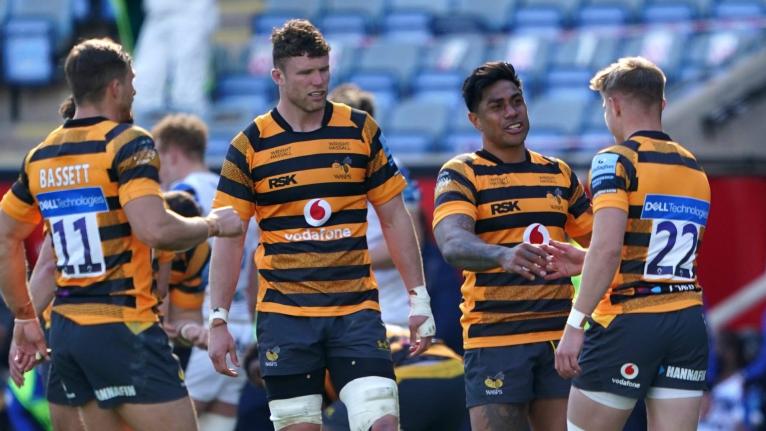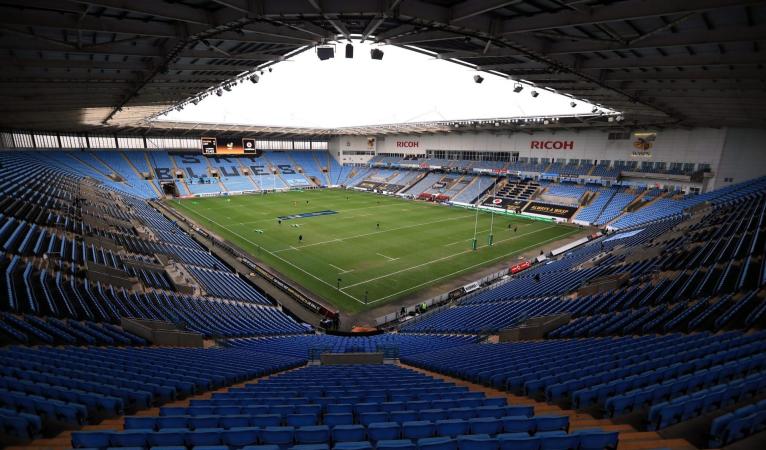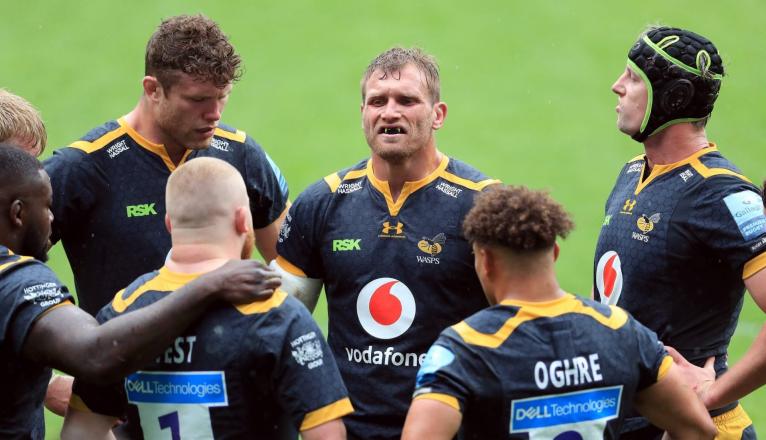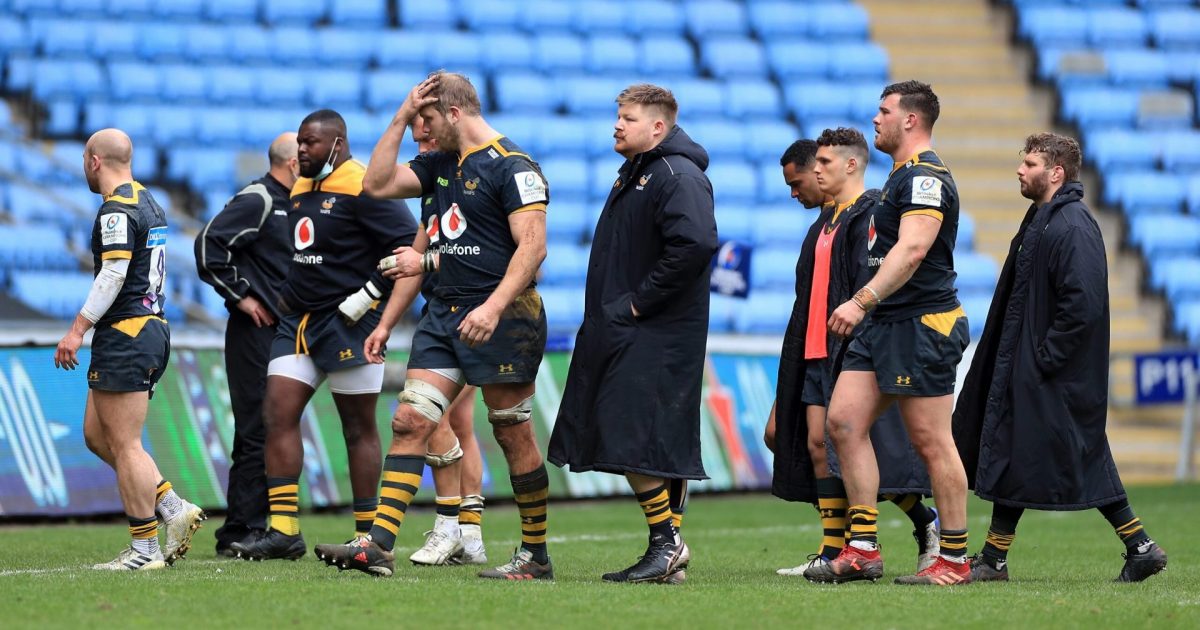Since Saracens exited the Gallagher Premiership last season the salary cap has all-but-disappeared as a discussion item. Of course, surviving Covid – in all senses of the phrase – has quite rightly occupied the soon-to-be 13 English top flight clubs’ every waking moment for much of the intervening period.
But comments made by BT Sport pundit and Wasps Non-Executive Director Lawrence Dallaglio on Times podcast ‘The Ruck’ have recently thrown a new pebble into the salary cap pond.
Reviewing Leicester’s round 22 win over his club the former England No.8 said:
“In the key moments Leicester had a bit more physical edge to their game. They seemed to have more depth in their squad, particularly off the bench.
“It would be fascinating for us all – and I’m not sure we’ll ever get to do this – to truly understand how much each club is spending on wages then write that down in a league table.
“While there is a salary cap in place, and there’s a couple of years in which each club has to fall in line with the agreed cap, there’s also differing amounts being spent by each club.
“I’d be interested to see – versus what they’re actually spending – where the league positions finish.
“It’s pretty clear that Exeter and Bristol are right at the top of that salary cap and spending a lot of money to finish first and second.
“If Wasps are not going to put money into the depth of their squad at this stage then they’re not going to finish at the top of the table, it’s as simple as that.”
With Covid-19 hitting revenue streams hard, Dallaglio’s remarks reflect that some Premiership clubs – including and perhaps led by – Wasps are in ever-deepening financial waters.
And far from struggling to stay within the now-reduced cap, it is entirely likely that the bottom half of the Premiership are slashing costs to stay afloat and as a result will be nowhere near the permitted spending threshold.
To give this some context, failure to qualify for the Heineken Cup and the Doomsday scenario of relegation (should it remain a possibility) are two catastrophic commercial scenarios for any Premiership club.

By contrast, as Wasps’ early time in Coventry showed, onfield success brings a feelgood factor that draws fans to games, sells replica kit and gets the corporate world interested in your product.
I will long remember covering the Black-and-Golds’ Christmas 2016 demolition of Bath for the Coventry Telegraph surrounded by 31,600 excited fans including families, women and children.
As Christian Wade ran in a brilliant hat-trick, and the Ricoh revelled in watching Kurtley Beale, Willie le Roux, Elliot Daly and Danny Cipriani – not to mention forwards Nathan Hughes, James Haskell and Matt Mullan – it was electric.
Lesser players – or more accurately a squad with some high-quality players but fewer of them and much less supporting depth – makes success less likely and this type of big revenue-earning occasion an infrequent possibility.

As a consequence, matchday earnings inevitably suffer. But perhaps more ominously this approach also positions a club dangerously close to a cliff-edge over which no owner wants to peer.
It seemed ridiculous in October to suggest that the 2020 Premiership finalists would struggle to qualify for the Heineken Cup – but Wasps scraped in on the last day of the 2020/21 season.
With Joe Launchbury and Jack Willis both injured, then likely to be absent with England, it must cross the minds of the Wasps board that another tough season might follow. It is therefore impossible not to see their thrifty approach to recruitment as an absolute last resort.
In the 2016/17 season Wasps were fined for overrunning the cap by a small amount following a financial planning error. Suffice to say, there is little danger of history being repeated five years on.
Should anyone doubt the scale of the change taking place at the soon-to-be Coventry Building Society Arena, consider the big-name players who have left and arrived since the club’s appearance in the 2017 Premiership Final.
Left: Kurtley Beale, Danny Cipriani, Jake Cooper-Woolley, Elliot Daly, Kyle Eastmond, James Haskell, Nathan Hughes, Ashley Johnson, Sam Jones, Willie le Roux, Matt Mullan, Will Rowlands, Joe Simpson, Will Stuart, Matt Symons, Tommy Taylor, Christian Wade.
Arrived and Left: Kieran Brookes, Juan de Jongh, Lima Sopoaga
Arrived: Malakai Fekitoa, Francois Hougaard, Matteo Minozzi, Brad Shields, Elliott Stooke
After a lean spell following the move from London to Coventry the club’s academy has filled some of this gap through the production of a number of exciting young prospects. The list, which is headlined by Jack Willis, features his brother Tom, fly halves Charlie Atkinson and Jacob Umaga, Tom West and Alfie Barbeary.
All of these plus former Sale back Paolo Odogwu have developed to the fringe of the England side – but on second or third-year post-academy contracts remain significantly cheaper options than the established international names now in pastures anew.
With recruitment that once focused on Super Rugby now being done in the Championship, just how financially hard hit are Wasps?
The table below shows that the Black-and-Golds have reported losses before tax in all but one of the six sets of accounts published since their move to Coventry in 2015. Including depreciation this represents an eye-watering £41.9 million – a figure bolstered by a one-off £12.5 million received in 2019 from CVC for their purchase of PRL shares.
| Year End | Losses |
| June 2015 | £6.3m |
| June 2016 | £9.3m |
| June 2017 | £3.7m |
| June 2018 | £9.7m |
| June 2019 | £4.6m profit |
| June 2020 | £11.1m |
| Dec 2020 (half-year) | £6.4m |
For Bristol owner Stephen Lansdown this represents small change. However, he is untypical within the Premiership where Wasps boss Derek Richardson was estimated by the Rugby Paper to have an above-average £60 million net worth.
In the interests of balance, it is only fair to point out that Wasps’ changed approach is not all about coping with Covid and trying to reduce trading losses – perfectly reasonable though these objectives are.
Alongside Richardson, who has invested £18.7 million, the club’s main liability which currently sits on the balance sheet at around £34.2 million is within a retail bond secured against the Ricoh Arena. This is due to be refinanced in 2022 and any investment in the stadium prior to then will increase the club’s borrowing scope.
The selection of the Ricoh as a Birmingham 2023 Commonwealth Games location has helped with this, since grants from the Coventry and Warwickshire Local Enterprise Partnership worth £5.2 million are funding redevelopment of parts of the facility.

The 10-year deal which sees Coventry City shortly return to the stadium from exile in Birmingham, is estimated to be worth £1 million per year to Wasps. The presence of a second major tenant also enhances the worth of the Arena as an asset.
Meanwhile the new naming rights arrangement with Coventry Building Society brings an end to a long period of uncertainty in addition to providing a new revenue stream.
The stadium has also recently opened a new bar and restaurant, casino operator Rank group have signed a long-term lease and planning permission has been granted for a second hotel operator to become the Wasps Group’s newest tenants.
Along with the establishment of a lengthy lease for Wasps to base their training at a redeveloped former Warwickshire College site near Stratford-Upon-Avon, this all suggests enough confidence remains for a long-term view to be taken.
But for the story to get to its later chapters Lee Blackett and his depleted squad must first get the club past the introductory pages.
While they may only be the tip of an invisible financial iceberg that is affecting a number of other established Premiership clubs, Wasps are under pressure and the likes of Worcester, London Irish and Newcastle are doubtless watching with interest.












































































